Porsche’s success in competition has been immense, adding more than 30,000 victories in all kinds of categories. Porsche has been able to win at the highest level of endurance, gran turismo, rally, raids and single-seaters.

In the early years, because Porsche offered small-displacement engines, victories were within its class. Absolute victories came from the 1960s (while class victories continued to accumulate). Porsche has also been characterized in that on many occasions it has delegated responsibility for semi-official and private teams.
Porsche at rallies
The most important victories in the world of rallying have been the brand title in the 1970 world rally (then the international championship) and the victories in the Paris-Dakar in 1984 and 1986. It has also won 20 European mountain championships and has won 11 Targa Florio. In addition to 19 absolute victories in the 24 Hours of Le Mans, being the manufacturer with the most absolute victories on the French circuit.
Porsche 356
The Porsche 356, being the brand’s first mass-produced model, logically was also the first to compete in rally, always in private hands and being very competitive. The first victory came in 1952 in the “Rally of the Midnight Sun” ( Sweden ), a test that it dominated perfectly, since it won again in 1953, 1954, 1955 and 1963.

The other rally in which the 356 performed remarkably was Liège – Rome – Liège, where, due to the large number of kilometers traveled, reliability was very important. It won this rally four times: 1952, 1954, 1957 and 1959. Helmuth Polensky in 1953 and Hans-Joachim Walter were proclaimed European champions of a 356 in 1961. Outside of Europe, the 356 managed to win the Pan American Race in its category in 1952 and 1953 (the victories in this race were the origin of the name Carrera used for the 356 and 911).
Porsche 911 2.0
911 debuted in rallying at the 1965 Monte Carlo Rally, earning a fifth place. The following year the regulations for approvals changed; Porsche managed to homologate the same model for all groups (although for group 1 it did with the 912).

The first victory in the top-flight rallies came at the 1966 Rallye Deutschland. Until 1969, it had 19 victories, including two Monte Carlo Rallies. In 1968 Pauli Toivonen was proclaimed champion of Europe and Porsche was third in the World Endurance Championship. The following year they were seconds. The power and weight of the 911 depended on the group in which it was approved. For group 5 it offered 210 hp and 830 kg of weight.
Porsche 911S 2.2 and 2.5
With the experience gained in the previous 4 years, the new 911S 2.2 was presented for the 1970 season.

That season Björn Waldegård had 3 victories: Monte-Carlo, Sweden and Austria. This was the last season that 911 had an official team, going from then to private teams. The 2.2 developed 230 CV and the 2.5 increased to 275 CV.
Porsche SC and 911 RS
In 1973 created the World Rally Championship the FIA, which resulted in the prohibition of group 5. Porsche’s answer was the 911 Carrera RS 2.7 for group 3. This model differed from the previous by his “Dovetail” due to the shape of its rear wing. The RSR version was homologated for group 4. Later the engine was expanded to 3 liters, reaching 300 HP of power. As the factory no longer had official equipment and the Lancia Stratos dominated with an iron fist, the results were scarce in the world championship. It was only able to win the 1978 Monte-Carlo Rally with Jean-Pierre Nicolas. However, in the hands of private drivers, it won numerous national titles during the 1970s.
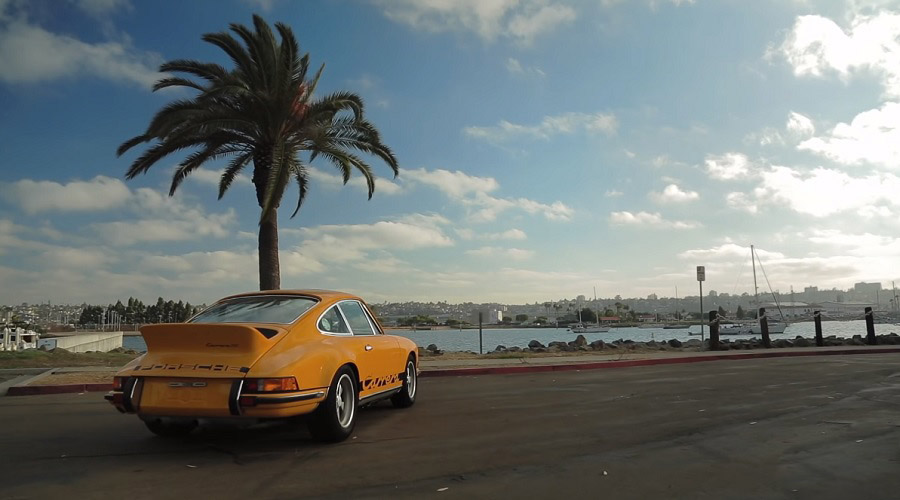
In 1978 Porsche announces its replacement, the 911SC. This model marked the return of an official Porsche team, sponsored by Martini, for the 1978 Safari Rally. In this debut, the performance was very good and only the problems with the suspension deprived Björn Waldegard of victory. In the end, Porsche had to settle for second and fourth place, signing one of its best performances in Africa. Despite the fact that soon the Porsches returned to private hands, especially those of the French team. Porsche Almeras, the 911 SC was able to win rallies with some regularity. Also in its record, is the European championship with the Spanish Antonio Zanini in 1980; and the French and Spanish national championships with Bernard Béguin and Zanini.
The 911SC achieved Porsche’s last victory in the world rally, it was in Corsica, in 1980.
Porsche 911 SC/RS
This car was prepared in conjunction with Prodrive, the team currently handling the official Subaru, to participate in Group B in 1984. The 911 SC/RS was not powerful enough and with rear-wheel drive was out of phase with all-wheel drive. Like the Audi Quattro or the Peugeot 205 T16. However, outside the World Cup, in the desert, a three-year period began in which Porsche’s victories were common. In 1984 Porsche also debuted in the Paris-Dakar with a 4-wheel-drive version of the 911 and won the first with René Metge and Dominique Lemoyne.

However, Porsche did not worry too much about the development of the last rally 911 because they were more concerned with the development of the 959.
Porsche 959
The 959 was the first Porsche specifically designed with group B and rally in general in mind. With all-wheel drive and a very powerful twin-turbo engine capable of 600 HP, it was a real beast. Introduced to the public in 1984, if it had debuted that same year it would have been the definitive Group B car, but it didn’t.
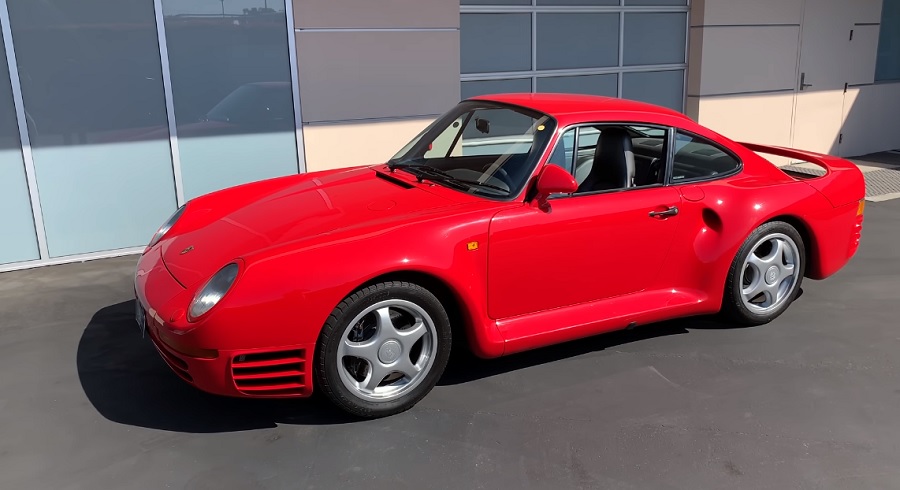
Porsche had to build 200 units to be homologated in group B. Due to delays in production, it was not possible to complete the 200th car until 1987, when group B was already banned. Porsche participated in races where prototypes were allowed. The result was excellent: in 1985 it won the Rally of the Pharaohs with Saeed Al Hajri, and prevailed in all the races.
In 1986, 959 won the Paris-Dakar with the Metge-Lemoyne couple.
Porsche on the circuits
The record of the brand in circuits is superior to that obtained in the world of rallying. The main championships in circuits obtained by the brand are:
- 2 titles as a Formula 1 with the McLaren team, under the alliance with the TAG brand, which co-created the team’s engines under that name.
- A Formula 1 victory as a constructor.
- 19 absolute victories in the 24 Hours of Le Mans
- 22 absolute victories in the 24 Hours of Daytona
- 18 absolute victories in the 12 Hours of Sebring
- 14 titles of the World Endurance Championship
- 18 IMSA GT Championship titles
- 6 titles of the German Motor Racing Championship
Formula 1
In the Formula 1 World Championship, the German brand competed three different periods, initially manufacturing chassis and engines for its official team and other private ones, and later as an engine supplier. Between 1959 and 1962, the official team achieved five podiums, one pole position, and one victory; from 1983 to 1987, it built engines for McLaren (under the TAG name), winning two Constructors ‘Championships and three Drivers’ Championships. Its chassis were 718, 787 and 804.
Porsche 935
The new group 5 defined the World Endurance Championship in 1976. The new cars had to come from standard vehicles, both mechanically and aesthetically. In addition, in order to participate in gr.5 the car had to have been homologated before in one of the lower groups. Porsche found that the 930/911 Turbo had a good starting point.

The 935 was not, even remotely, a tourer and the 911 Turbo was the roofline and the base of the mechanics. With 2857 cc and turbo (to enter the 4.0-liter category), started developing 600 hp in 1976 to end up offering up to 850 hp. For Le Mans the 936 was developed, since in this race there was a group 6. The 934-935-936 family is the most successful Porsche in terms of wins.
Specifically, the 935 crushed all existing opposition, adding between 1976 and 1981, 41 victories in the World Endurance Championship and 63 in the US IMSA GT Championship. To this we must add the victory in the 24 Hours of Le Mans in 1979, where the 935 were 1st, 2nd and 3rd, and a 934 was 4th. It accumulated 6 consecutive victories in the 24 Hours of Daytona, 5 consecutive titles in the World Endurance Championship and another 5 in the IMSA, apart from many national championships around the world.
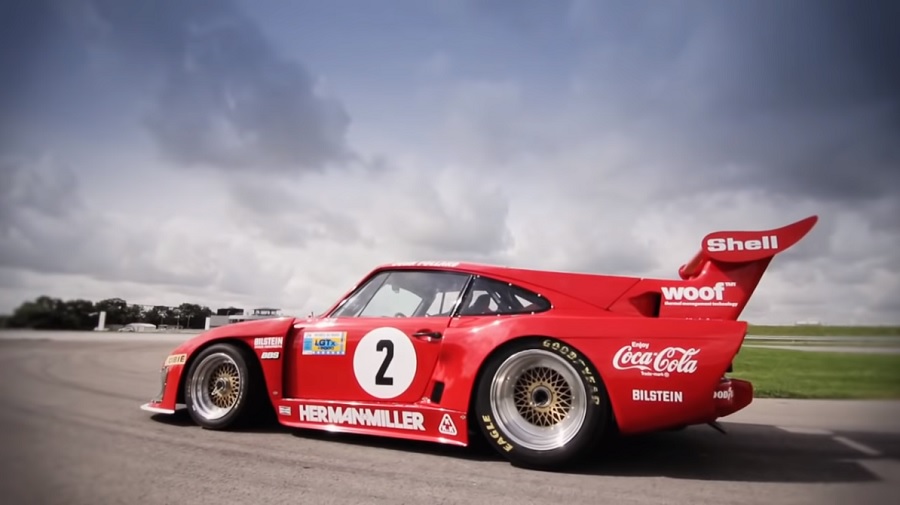
There is no other car with a similar record. Such was the superiority, that Porsche retired its official team in 1978, bored by the lack of opposition, thus leaving a multitude of victories within the reach of the Porsches of the private teams.
Porsche 917
The 917 was born from a change in the regulations of the Endurance World Championship promoted by the CSI (Commission Sportive Internationale) in 1968. With the new regulation a new category of cars appeared called Group 4, for which it was necessary to produce the minus 25 units of the model. Achieving this production was not a problem for Porsche, which developed the 917 as a substitute for the 907 and 908.
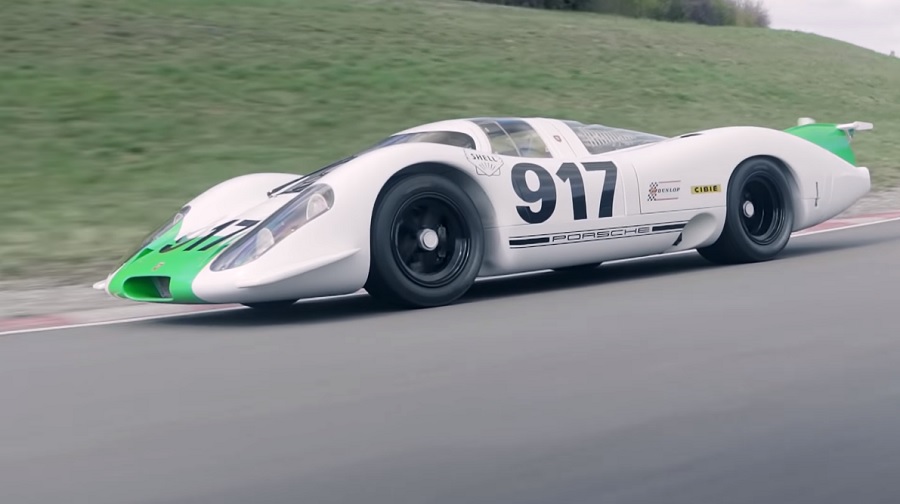
In July 1968 the Ferdinand Piëch team took over the project. For the development of the engine, the eight-cylinder engine of the 908 was chosen, which was thoroughly transformed to obtain a twelve-cylinder 4.5-liter engine producing 542 HP.
The 917 debuted in competition in 1969, in the 1000 km of Spa, without much success. It quickly gained a reputation for being fast and dangerous and lacked aerodynamic development. In 1969 Le Mans practice, it set a new track speed record with 394 km/h on the Mulsanne straight. Already in the race one of the 917 drivers, John Woolfe, was killed on the first lap; the other two cars would also be knocked out.
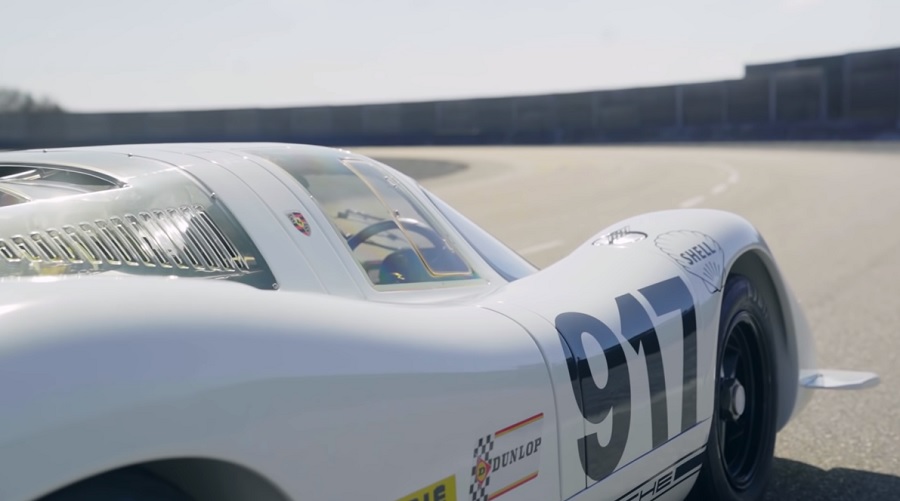
The first victory for 917 would come in the 1000 km from Austria. To solve the stability problems the short tail 917K appeared. During 1970 and 1971 the dominance of Porsche was overwhelming, of the 24 World Cup races in which the 917 participated between 1969 and 1971, they were victorious in 15 and the 908 won in four others, achieving for Porsche the Endurance Championship in 1970 and 1971.
A new regulation for the 1972 championship ended 917 at the World Championship. This forced 917 to emigrate to the American Can-Am. The Can-Am 917s equipped with supercharger reached 1,100 hp in the last 917/30. In the Can-Am it achieved 11 victories and the titles of 1972 and 1973.









